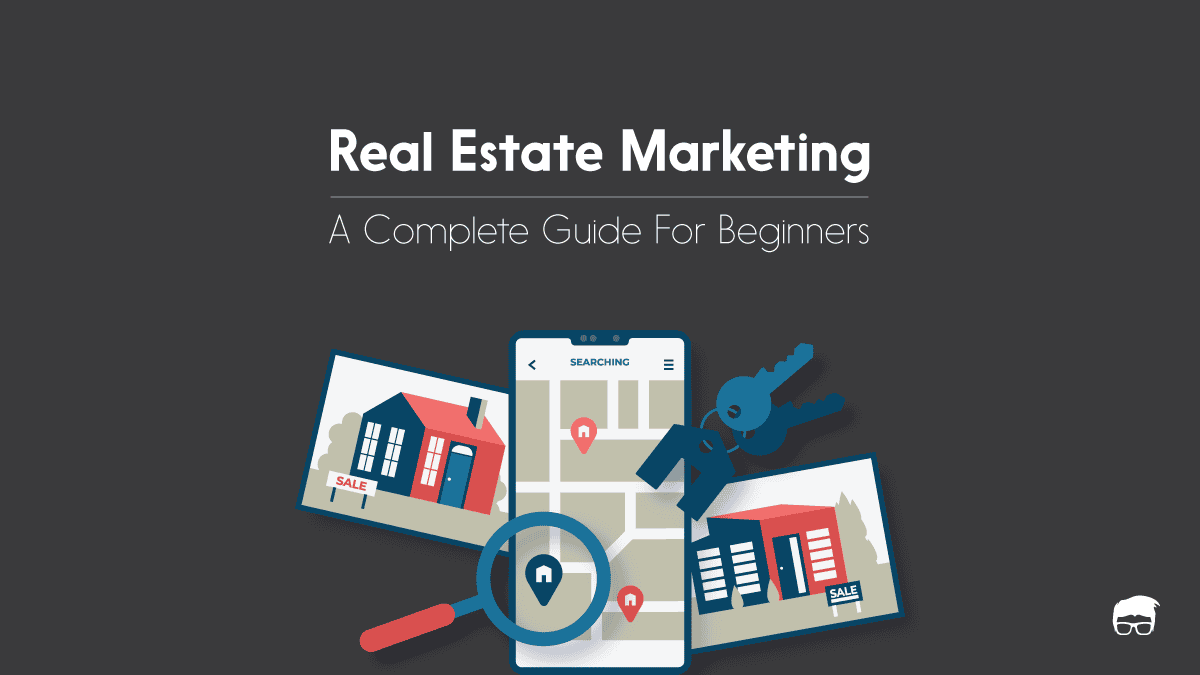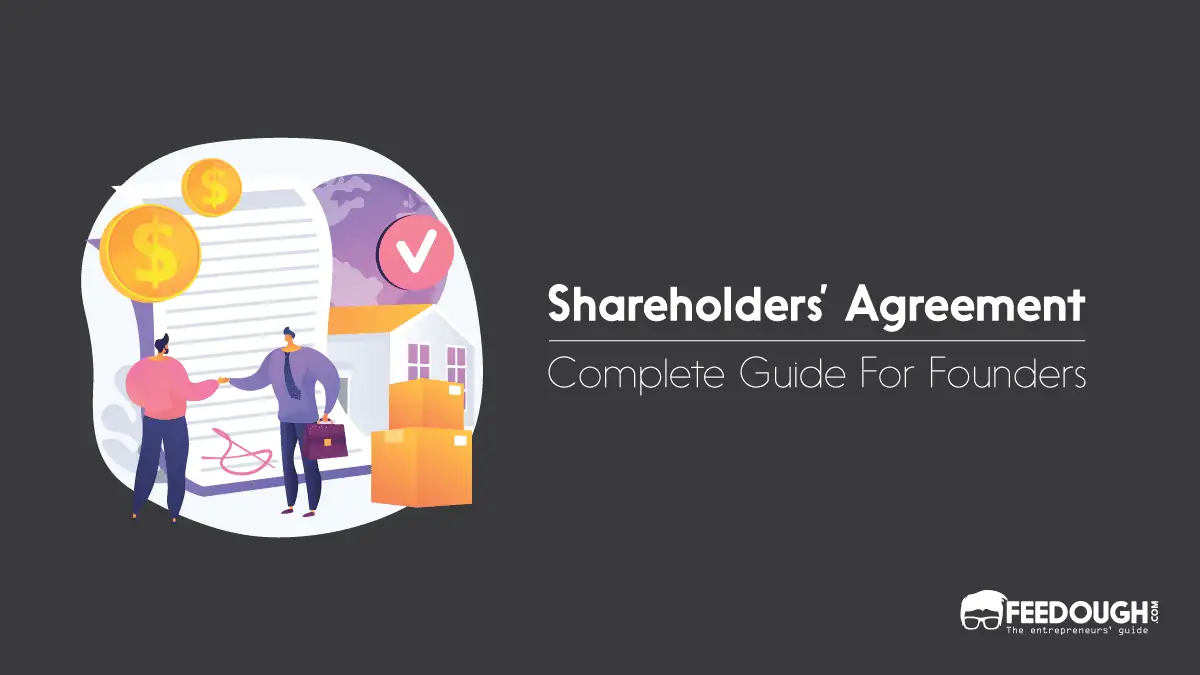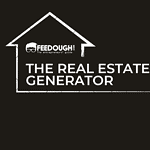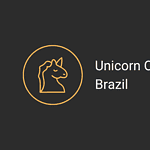Just like any other industry, marketing plays a critical role in the real estate market. A property doesn’t sell itself. The seller has to understand the current market trends and sentiments, price their property correctly, and spread the word to potential buyers.
And it’s not always just the seller and the buyer who is a part of the exchange, several other parties like real estate agents, brokers, and lenders are involved in the process as well. This is where the concept of real estate marketing comes into play – marketing efforts to make a property stand out in the market and attract potential buyers.
What Is Real Estate Marketing?
Real estate marketing refers to the strategies and techniques used to promote and sell real estate properties, services, or a real estate brand to potential buyers, sellers, renters, or investors.
It involves activities like advertising, networking, public relations, and social media marketing to reach out to identify potential need or demand in the real estate market, convert that demand into leads, and then finally close the deal.
Several parties are involved in the process of real estate marketing, including sellers, buyers, agents, brokers, and lenders. Each party works towards the goals of –
- Connecting the potential buyer to the right property
- Helping sellers find the right buyer
- Assisting renters in finding their dream home
- Supporting investors in identifying profitable opportunities
- Other various services related to the buying and selling of properties.
In simple terms, real estate marketing is the bridge between buyers and sellers, connecting them through effective communication and strategies to facilitate a successful transaction.
Importance of Real Estate Marketing
Without marketing, sellers may struggle to find potential buyers, and buyers may miss out on their dream property. Real estate marketing is crucial for both parties as it helps them achieve their goals efficiently. Here are some key reasons why real estate marketing is essential –
Attracts Potential Buyers
The main goal of marketing is to attract potential buyers, which is especially important in a competitive real estate market. Real estate sellers, brokers, and agents use various marketing techniques to promote a property’s unique features and benefits, making it stand out among similar properties in the market.
This is essential to maintain a steady flow of interested buyers, increasing the chances of selling the property at a desirable price.
Builds Credibility and Trust
Real estate marketing also helps in building credibility and trust with potential buyers. Trust is hard to gain, especially when it comes to big investments like buying a property. Effective marketing can showcase the seller’s or agent’s expertise and experience in the industry, gaining the buyer’s trust and increasing their confidence in making a purchase.
Builds Brand Reputation
Effective real estate marketing also helps in building a strong brand reputation. Consistent and successful marketing efforts can establish a positive image of the real estate brand, making it more recognisable and trustworthy in the market. This can lead to repeat business from satisfied clients and referrals from happy customers.
Facilitates Successful Transactions
With the help of effective marketing, potential buyers are more likely to find their dream property, while sellers have a better chance of selling their property at the desired price. Real estate agents and brokers also play an important role in facilitating these transactions by connecting buyers and sellers through their network and marketing efforts.
The Real Estate Marketing Funnel
A marketing funnel is a visual representation of the stages that potential buyers go through from initial awareness of a property to the final purchase. This concept when applied to real estate marketing is known as the real estate marketing funnel.
The stages of a real estate marketing funnel are –
- Awareness – This is the initial stage where potential buyers become aware of a property through various marketing efforts like advertisements, social media posts, or referrals.
- Interest – In this stage, potential buyers start showing interest in the property and gathering more information about it. From a sellers perspective, this is where they start showcasing the unique features and benefits of the property to keep the potential buyer’s interest.
- Consideration – This stage involves serious buyers who are actively considering purchasing the property. Sellers and agents use marketing techniques like virtual tours, open houses, or personalised communication to further convince them to make a purchase.
- Intent – At this stage, potential buyers have made up their mind and intend to make an offer on the property. This is when contracts like real estate investment contracts, purchase agreements, or lease agreements are drafted and discussed.
- Purchase – The final stage of the real estate marketing funnel is when the potential buyer makes a purchase, also known as conversion in marketing terms. This is when all the marketing efforts and strategies have paid off, resulting in a successful transaction for both parties involved.
Types of Real Estate Marketing Strategies
Different stages of the real estate marketing funnel see the application of different marketing strategies. Here’s how it pans out –
Awareness Stage –
This is the perfect top of the funnel stage to showcase the seller’s expertise and build brand reputation. Some effective marketing strategies that real estate agents and brokers use at this stage are –
- Social Media Marketing – Most real estate marketers use social media to engage directly with potential buyers or sellers. They do the same by either building a brand around their content and attracting followers or by using paid advertising options provided by various social media platforms. Some common platforms used for real estate marketing are Instagram, Facebook, and LinkedIn.
- Content Marketing – Some real estate agents try to differentiate themselves and build a brand around themselves as a local market expert in a specific area. This is usually done through blog posts, infographics, or videos that provide valuable information to potential buyers about the local real estate market and trends.
- Real Estate Listings – Another popular way to generate awareness about a property is by listing it on various online platforms like Zillow, Realtor.com, or Redfin. These websites have massive traffic of potential buyers actively seeking properties, making them an ideal platform for sellers to showcase their listings.
- OOH, Print, and other traditional marketing methods – Out of home (OOH) advertising, like billboards or flyers, and print ads in magazines or newspapers, can also be effective ways to generate awareness about a property. These methods are usually used in combination with online strategies for better reach and impact.
Interest Stage –
Once potential buyers are aware of a property and start showing interest, real estate marketers use tactics like social proofing, email marketing campaigns and personalised communication to keep their interest alive. Some other strategies used during this stage include –
- Virtual Tours – With the advancement of technology, virtual tours have become a popular way to showcase properties to potential buyers without them having to physically visit the property. This saves time and effort for both parties involved.
- Open Houses – Hosting an open house is a traditional but effective marketing strategy used by real estate agents. It allows interested buyers to visit the property, ask questions, and get a feel of the neighborhood before making a decision.
- Applications and Online Tools – Some real estate agents use applications and online tools to showcase properties and gather information about potential buyers. This helps in personalising communication with interested buyers and understanding their preferences better.
Consideration Stage –
At this stage, potential buyers are actively considering making a purchase. To convince them, real estate marketers use strategies like retargeting ads, direct mail, or personalised follow-ups through email or phone calls.
- Retargeting Ads – These are paid advertisements shown to people who have already visited the property’s website or social media page. It keeps the property fresh in their minds and can increase the chances of conversion.
- Direct Mail – Sending direct mail postcards or letters can be an effective way to reach potential buyers who may not be actively searching for properties but might be interested if presented with the right opportunity.
- Personalised Communication – Following up and communicating personally with potential buyers, understanding their needs, and addressing any concerns can go a long way in convincing them to make a purchase.
Intent and Purchase Stage –
The final stages of the real estate marketing funnel involve finalising the transaction and ensuring a smooth transition for both parties. Real estate marketers use strategies like referral marketing, exclusive offers or discounts to encourage potential buyers to convert into actual buyers.
- Referral Marketing – Encouraging satisfied clients to refer their friends and family can be an effective way to generate leads in the real estate industry. This is often done through incentives or rewards for successful referrals.
- Exclusive Offers – Offering exclusive deals or discounts during this last stage can nudge potential buyers towards making a purchase decision. These offers could include free home inspections, closing cost assistance, or reduced interest rates on mortgages.
- Personalised Follow-ups – Maintaining a good relationship with potential buyers even after the purchase can lead to repeat business and referrals in the future. This could include sending personalised thank you notes, anniversary cards, or holiday greetings.
Real Estate Marketing Examples
A hypothetical example of a successful real estate marketing campaign could be:
A real estate agent, John, specialises in luxury properties in a specific neighborhood. To generate awareness about his expertise and attract potential buyers, he regularly posts high-quality content on social media showcasing the local real estate market trends and showcasing his listings. He also invests in targeted social media advertising to reach potential buyers interested in luxury properties.
Interested buyers who engage with John’s content are added to his email list, where they receive personalised emails with more information about the properties they showed interest in. These emails also include invitations for virtual tours or open houses.
One of these interested buyers, Sarah, decides to attend an open house hosted by John and falls in love with one of his listings. However, she is not ready to make a purchase yet.
John continues to follow up with Sarah, sending her personalised emails and retargeting ads to keep the property fresh in her mind. He also offers her a free home inspection if she decides to make a purchase.
Finally, Sarah decides to make an offer on the property and successfully completes the transaction with John’s assistance. She is happy with her purchase and recommends John to her friends who are also looking for luxury properties in the area.
While these hypothetical examples clearly show the real estate marketing process, here are some real-life real estate marketing examples.
Virtual Tours and Video Content
Esquire Real Estate Brokerage offers virtual tours of luxury mansions, allowing potential buyers to explore properties remotely. This approach became particularly popular during the pandemic and is an effective marketing tool.
Facebook Advertising
Agentfire, a leading Facebook marketing company, generated 768 leads over two months for a client with a budget of $2,500. This campaign showcased the power of targeted social media advertising in real estate.
A startup consultant, digital marketer, traveller, and philomath. Aashish has worked with over 20 startups and successfully helped them ideate, raise money, and succeed. When not working, he can be found hiking, camping, and stargazing.









